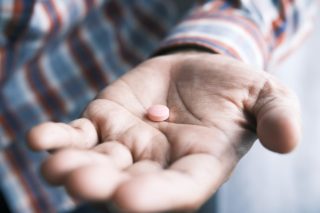Paxil is an antidepressant that’s part of a group of drugs called selective serotonin reuptake inhibitors (SSRIs). These medications effectively increase serotonin, also known as the “happy hormone,” which makes people feel good. People going through addiction often have symptoms of depression and related disorders. It’s been suggested that Paxil for addiction may be useful in the treatment of drug and alcohol abuse. However, the use of Paxil and other antidepressants has been questionable, confusing those looking for ways to effectively and safely address their substance abuse disorder.Before taking Paxil, it’s vital to know when and how it may be useful in your particular situation, the other medications you may be using, and the conditions with which you may also suffer. In this article, you’ll learn all about Paxil’s mode of action, potential uses, and effectiveness. In addition, you’ll gain a better understanding of drug and alcohol addiction and the role Paxil may play in its treatment.
Paxil for Addiction? The Role of Antidepressants for Drug and Alcohol Treatment


Table of Contents
What Is Paxil?
Paxil is the well-known trade name for the antidepressant drug paroxetine. It belongs to a group of drugs called selective serotonin reuptake inhibitors (SSRIs), which are designed to increase serotonin (“happy hormones”) in the brain. Paxil, a product of the pharmaceutical company GlaxoSmithKline (formerly Smith-Kline Beecham), was made available in the United States in 1992. The patent expired in 2003, after which many generic and brand names appeared, including Aropax, Deroxat, Paxetin and Sereupin.
What Is Paxil Used to Treat?
Paxil was developed to treat major depression. This SSRI drug is popularly prescribed to relieve a range of symptoms including:
- Moodiness
- Irritability
- Restlessness
- Nervousness
- Worthlessness
- Insomnia
Paxil is considered to be one of the most potent SSRIs. Along with other SSRIs, Paxil is often used to treat many other conditions as well:
- Panic disorder
- Bulimia nervosa
- Fibromyalgia
- Hot flashes related to menopause
- Generalized anxiety disorder
- Obsessive-compulsive disorder (OCD)
- Post-traumatic stress disorder (PTSD)
- Premenstrual dysphoric disorder (PMDD)
How Paxil Works
This antidepressant is available in two versions, both of which affect the levels of serotonin in the brain. Immediate-release tablets of Paxil (10-, 20-, 30- and 40-milligram doses) take effect shortly after it is ingested. Controlled-release tablets of Paxil CR (12.5-, 25- and 37.5-milligram doses) are also made so that the medicine is gradually released in the body throughout the day. Initially, when SSRI usage stops the buildup of serotonin, the body attempts to compensate for the change in serotonin levels by downregulating its production. Eventually, the body goes back to its normal production and the serotonin levels increase as intended by the drugs.Serotonin (5-hydroxytryptamine or 5-HT) is an important hormone that plays a role in making people feel good. As a neurotransmitter, the “happy hormone” sends messages between cells in the brain. Serotonin is produced by nerve cells using tryptophan, an essential amino acid found in red meat, nuts and cheese. If the nerves don’t have enough of this amino acid, serotonin levels drop. As a result, people with a deficiency may experience depression, anxiety and other, related mood disorders.When Paxil and other SSRIs are taken, the drug works by preventing serotonin from being used up. In turn, this causes the levels of serotonin in the brain to increase. When serotonin levels are high, the nerves can more easily transmit messages between brain cells. In general, increased levels of serotonin make people feel calmer, more focused and more stable. It also can improve a person’s overall well-being. Therapeutically, elevating serotonin levels using drugs can be effective to treat depression.
Side Effects of Paxil
As with any kind of medication, side effects are possible, whether minor or serious. Patients that take this antidepressant may experience one or more of the most common mild side effects. Except for sexually related side effects, the following symptoms eventually subside:
- Drowsiness
- Headache
- Nausea
- Weight changes
- Restlessness
- Dry mouth
- Sexual side effects
- Withdrawal symptoms
Some people may experience severe side effects, although this is rare. If patients do experience any of these symptoms, it’s important to seek medical attention:
- Unusual bleeding
- Fast heart rate
- High fever
- Seizures
- Skin issues
If you’re taking Paxil and are concerned about its effectiveness in treating your addiction, contact Windward Way Recovery with your concerns.
Drug and Alcohol Abuse
Substance abuse disorder is the medical term for drug and alcohol abuse or drug addiction. It’s categorized as a medical condition or disease that causes a person’s brain and behavior to change. These changes can make it so that it’s difficult for someone to control or stop the use of drugs.A person can be addicted to many types of substances whether legal prescriptions or illegal street drugs including:
- Marijuana and other cannabis drugs.
- Synthetic cannabinoids and cathinones.
- Barbiturates, benzodiazepines and other hypnotics.
- Cocaine, methamphetamine and other stimulants.
- Painkillers and other opioids.
- LSD, PSP and other hallucinogens.
- Ecstasy, GHB and other club or party drugs.
- Paint thinners, markers, gasoline and other inhalants.
- Alcoholic beverages.
- Tobacco and other nicotine products.
Depending on the drug, a user will experience any number of symptoms or side effects. When misused, the drugs will have characteristic signs that indicate intoxication or addiction. In general, a person’s actions will create unsafe and unhealthy situations and relationships including:
- Minor to life-threatening health ailments.
- Work and school problems.
- Financial issues, including stealing.
- Grooming and hygiene issues.
- Unusual behavior towards friends and family.
There exist many causes and risk factors for why a person becomes addicted to drugs. Primarily, substance abuse disorder is influenced by a person’s genetic makeup and environment. Drugs don’t discriminate, so any person of any age, gender or economic class can be subject to alcoholism and addiction. The following risk factors may increase the likelihood of someone abusing substances:
- History of addiction in the family
- Early use at a young age
- Exposure to drugs known to be highly addictive
- Mental illness or disorders
- Pressure from peers
- Dysfunctional home environment
Drug addiction can lead to many problems at home, work and school as well as in other social settings. When left untreated, issues can pile up, causing seemingly insurmountable problems. While some problems can be worked out, like financial and legal issues, continued use can be life-threatening. Many people with addiction have lost their lives by diseases, accidents and even suicide. As such, it’s important to prevent drug abuse or seek treatment if already addicted.
Paxil as a Substance Abuse Treatment
People with substance abuse disorder often enter rehab programs. During the evaluation and recovery process, many patients learn they have a mental disorder. It’s not uncommon for those who have a drug or alcohol addiction to suffer from other undiagnosed conditions, such as anxiety, depression and PTSD. This is known as dual diagnosis or co-occurring disorders.When a proper diagnosis is made, patients may be prescribed anti-anxiety medicines and antidepressants to help with their issues. Drugs like Xanax and Ativan pose too high of a risk for dependency, so Paxil is a safer treatment option. If a person isn’t used to taking antidepressants, they may initially experience suicidal thoughts. For that reason, it’s vital to watch for mood swings and other potentially harmful side effects.
Medications to Avoid When Taking Paxil
Extreme caution should be taken when using other medications with Paxil. Paxil should not be used if a person is currently on pimozide or thioridazine. Patients with plans to use medications known as MAO inhibitors, such as isocarboxazid or methylene blue injection, should avoid taking Paxil anytime 14 days before or after.When there’s a current or past history of being afflicted with any of the following conditions, certain medications used to treat them might not go well with Paxil. If that’s the case, patients must ensure that their physician is well aware of it as a safety precaution:
- Heart disease, including high blood pressure or stroke
- Liver or kidney disease
- Blood disorders
- Epilepsy or seizures
- Bipolar disorder (manic depression)
- Narrow-angle glaucoma
- Low sodium in blood
It’s especially important to avoid certain drugs that can cause serotonin syndrome. When taking with Paxil, the drugs can elevate serotonin to potentially life-threatening levels. These include opioids, stimulants, and herbal medications. In addition, if people with the following conditions often take these types of drugs:
- Depression
- Mental illness
- Parkinson’s disease
- Migraine headaches
- Severe infections
- Nausea and vomiting preventatives
Questionable Effectiveness of Paxil for Addiction
The effectiveness of Paxil and other SSRIs as a treatment for addition has been questioned. Earlier research has led many to believe that depression is caused by a decrease in serotonin receptors. However, there is no clinical evidence that this is the case. In addition, some studies have shown that antidepressants aren’t any more effective than placebo study subjects. Even so, many pharmaceutical drugs have been marketed as being effective at treating depression disorders. In any case, SSRIs have fewer side effects than other antidepressants.
Best Uses for Paxil for Drug and Alcohol Abuse
The main issue with Paxil and similar antidepressants is that they can take weeks before a patient may notice any benefits. While it may appear that SSRIs would be suitable as a primary treatment of substance use disorders, they actually may serve a better purpose. However, it may make more sense to use Paxil as a complementary treatment in combination with other approaches designed to treat various symptoms of abuse.As mentioned previously, those with a history of drug and alcohol abuse are at great risk of having dual disorders. When more than one illness is present along with substance misuse, it’s essential to focus treatments on each of those problems. For example, if a person suffers from an eating disorder, that should be addressed rather than overlooking it or assuming it will go away because of rehab.If patients are going through withdrawal symptoms, they may be served well by being treated with Paxil. Although Paxil may not be effective for other symptoms of drug abuse, it could diminish the effects people experience when coming of various drugs such as alcohol, possibly heroin and meth or similar opiates and stimulants, and potentially benzodiazepines though little data exists. Similarly, Paxil may work to counteract antidepressant discontinuation syndrome, which is a dependency that’s common when patients stop taking medications for depression.Studies have suggested that Paxil may offer solutions for a wide range of substance abuse disorder symptoms, even if it is not effective for addition overall. The exception, based on studies, is that Paxil isn’t effective for tobacco addiction whether used as a primary or supplemental treatment. While Paxil is an antidepressant, a person going through recovery can be weaned off it without going through withdrawal symptoms.
Let Us Help You
Paxil and other SSRIs effectively increase serotonin levels in the brain. Their mode of action has been the focus of research studies that both suggested and questioned its use in the treatment of substance abuse disorder symptoms. In the absence of more data and evidence, it’s still clear that Paxil for addiction may serve a better purpose when used as a complementary treatment rather than a primary one.If you suffer from alcohol and drug abuse or suspect you may have an undiagnosed co-occurring disorder, know that you’re not alone. Our team can help you navigate treatment options. Contact us for more information so that your quality of life may be improved.




